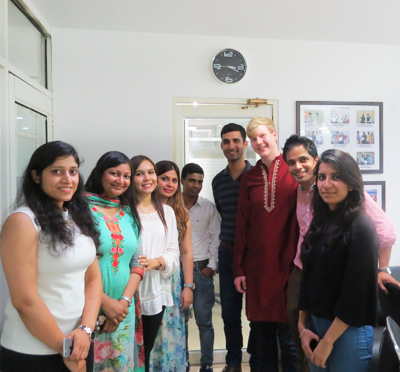About Germany
Officially known as the Federal Republic of Germany, it has been at the center of Europe’s political and economic happenings for a long time. It is the largest and the most populated country in the continent of Europe. In today’s context Germany has emerged to be the powerhouse of both economic as well as intellectual aspects of the region. Apart from Russia, Germany is the most populous country in mainland Europe. In fact, the land mass of Germany included parts of modern day Poland and Lithuania. The education system in Germany is quite unique right from the early days of schooling with schooling being optional till the age of 6 years. One of the most encouraging aspects of education in Germany is the concept of group study with students giving and receiving help from their peers. The students can also form groups together right from the start to the end of their courses. Some of the benefits of opting for a degree at a German university are in the form of student community participation, library studying and a language partner for getting over difficulties in German. Germany has much to offer as a place to study and is one of the most highly developed industrial nations in the world and, after the USA and Japan has the world’s third largest national economy.
German Education System
Globally around 1.8 million students pursue higher studies abroad. Of these, approximately one tenth come to Germany. German Universities are autonomous and provide special emphasis on research and teaching. Some of the groundbreaking discoveries that the world has seen have been the result of German Universities. This is one of the strongest reasons why students increasingly prefer Germany for research studies. Education, science and research play a central role here. Germany is one of the most preferred countries by International students, a hub of cutting-edge international research and a constant source of new patents. Germany currently has more than 300 institutions of higher education that include 82 universities, 132 such institutions that offer shorter and practically oriented courses, and other institutions. Higher education, universities and establishments are wholly state funded. Alternatively, they are also recognized by the state. Germany has a high turnout of foreign students as it offers a high range of study possibilities. There is a range of subjects that the students can choose to study from literature to music and also sports. Students can opt out of a course or even a college and switch to another course of college. A high degree of importance is placed on research as opposed to theoretical study. Students can form groups to study and subsequently present their papers, although group diplomas are not awarded. Students are encouraged to apply for jobs, even when they are studying which makes them comfortable in the overall working conditions of the German work culture much before they take on their first true job.
German Universities offer courses in Medicine, Engineering, Management, Law, English and various other disciplines. Academic freedom is one of the main characteristics of the German university system and is one of the reasons why public universities in Germany don’t charge any fee.
Working in Germany
Part time employment in Germany
Students can work upto 20 hours a week during term time.
Students could look out for part-time jobs by looking in the local newspapers and job shops as well as the Universities and Colleges career cells where information is available about vacancies.
However students are not guaranteed part time employment by the University.
Employment in Germany
18 month job Search Visa after Studies.















